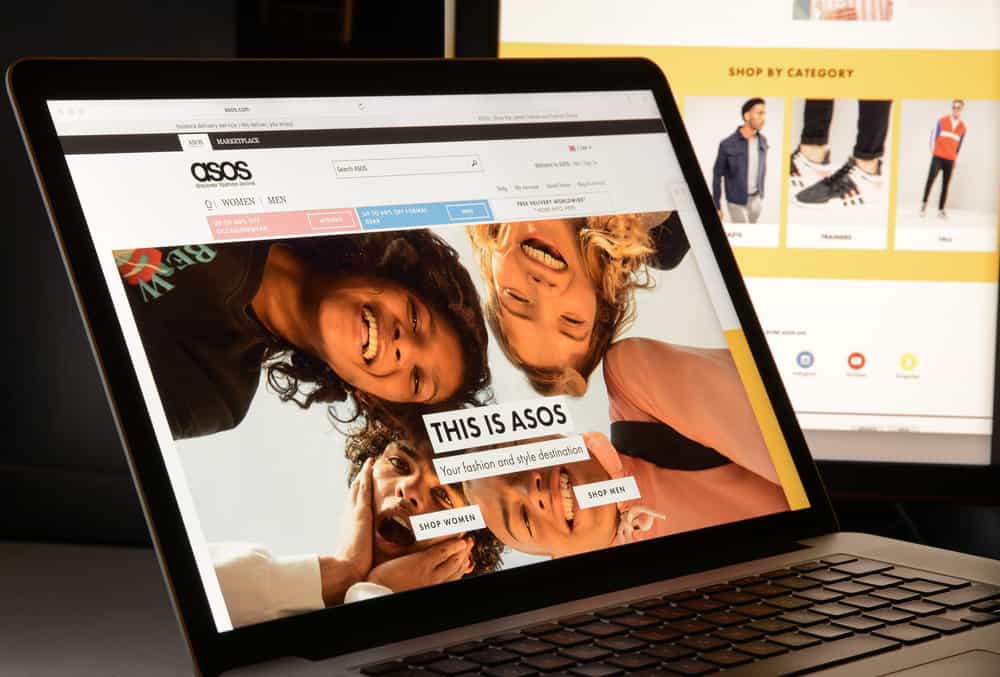It’s important to know where your clothes are coming from, and shoppers have the right to know about the companies they are buying from so they can make informed decisions about where they purchase their clothing.
Although there are a lot of cheap clothes suppliers out there that provide cute and affordable clothing, could it be you are paying a moral price instead?

This is why transparency between companies and their customers are so important. You deserve to know what kind of company your money is funding when you buy their products, and you have the right to boycott a company that does not meet your standards when it comes to their equality and sustainability policies.
If you are concerned about the environment, animal welfare, or labor exploitation, then you will want to know where a company stands on these issues before you start handing them your money.
Here, we will be talking about the hugely popular online retailer ASOS and what their policies are that help towards equality and sustainability.
Knowing more about ASOS can help you decide where you want to buy your clothes from so you can wear them with pride, knowing that you are taking all the steps you can to make this world a better place for everyone.
Who Are ASOS?
ASOS is a British online fashion and cosmetic retailer, founded in 2000 in London with the aim to provide its customers with total freedom over their style and clothing.
The company claims to believe in experimentation and expression of self without judgement, and aim to do so by providing their customer switch over 850 brands available on their website.
They also ship to 196 countries, making them one of the largest and farthest reaching online fashion retailers out there.
ASOS does more than just try to provide a variety of styles and products, however. They also promote body positivity so everyone – no matter their size – can feel confident in their own skin and clothes.
They offer clothes in more than 30 sizes, and are partnered with GLAAD (Gay and Lesbian Alliance Agaisnt Defamation) to provide gender neutral collections so those who are gender fluid or non conforming can be free to express their gender identity exactly how they want to.
ASOS are also partnered with the British Paralympic Association, providing the athletes with specially tailored clothing that is adapted to suit their individual needs.
All in all, ASOS seems to have very strong values when it comes to identity and equality, but do their ambitions of freedom apply to their labor force and where they source their clothing from?
On their website, ASOS claims to collaborate closely with their suppliers to focus on three key areas as part of their corporate responsibility: ethical trading, sustainable sourcing, and animal welfare. They have an ambitious plan in place to improve their standards by 2030, but what are their goals and are they on track to meet them?
ASOS And Ethical Trading
The term ‘ethical trading’ refers to the company’s responsibility to improving work conditions for those who make their products. A company that trades ethically pays a fair wage to all of their workers and ensures the environments they work in are safe and clean.
They also do not infringe on their workers’ human rights and treat their workers with respect.
For ASOS to be considered an ethically trading business, they need to be transparent with their policies when it comes to their workers, meet standard labor laws and pay all of their workers a fair and decent wage.
And do ASOS follow through on these things?
Well, we don’t know.
ASOS claim in their Fashion With Integrity 2030 Strategy report that they are in partnership with Anti-Slavery International and are building upon a modern slavery reports to set out a strategy and progess on living wages, but no where do they give us actual figures and facts – just promises that they will be better by 2030.
It’s not very promising, and likely means that ASOS is not a very ethical and fair business when it comes to their workers.
Also, ASOS only achieved a score of 41-50% in the Fashion Transparency Index. While it scored a lot higher than some companies, they still have a long way to go.
While ASOS do admit that they need to be more transparent with their customers in the exact same report, they have not been very forthcoming about if they pay fair wages or what the conditions are like in their factories.
Perhaps by 2030 we will have a clear image, but for now, a lot of ASOS’s policies surrounding their workers and human rights remain rather murky.
ASOS And Sustainability
With global warming and the climate crisis being such a concerning issue in recent years, ASOS certainly have a huge responsibility to cut back on their emissions and increase the recyclability of their products – and their outlook is much more positive than compared to their ethical trading.
ASOS have reduced their carbon emissions by 30% since 2015, and have increased the amount of recycled content in their products. Their cardboard boxes are 100% recycled material, and their mailing and garment bags are 90% recycled content. You can recycle the bags yourself or return them to ASOS to ensure that they will be recycled.
They have also outlined in their Fashion With Integrity 2030 Strategy further plans to reduce emissions and minimize their environmental impact, so the future remains hopeful for ASOS when it comes to sustainability.
They are certainly making the efforts and the results speak for themselves, however there is always room for improvement.
ASOS And Animal Welfare
And finally, animal welfare – ASOS does not use angora, fur or exotic animal skin, and sources wool from non-mulesed sheep thanks to the company following a policy aligned with Five Freedoms.
However, the company does still use leather, mohair, alpaca, and cashmere without specifying its sources and so we cannot guarantee that animals have not been harmed during the sourcing process.
It’s not awful, but ASOS can definitely improve by sourcing all of their animal products and ensuring that every product they have is cruelty free.
Conclusion
So is ASOS regarded as an ethical and sustainable company?
In short, no – there is not enough transparency when it comes to material sourcing and workers’ conditions.
Although ASOS are happy to point to their lowering emissions and recyclability, they are suspiciously quiet in other areas. Of course, there is still room to grow and ASOS have until 2030 to reach their self imposed goals, but how honest will they be if they fail to meet their own standards?
Ultimately, the choice to shop at ASOS is yours but it’s safe to say that customers are not happy with ASOS’s lack of transparency and perhaps it’s time for shoppers to look elsewhere for more sustainable and ethical retailers.
There are online retailers available who are far more transparent with their policies and standards than ASOS is, so if you are unsatisfied with the company’s policies, we recommend checking them out as a more ethical alternative to this fashion giant.
- What Is Inseam And Why Does It Matter? - September 9, 2022
- Sneaker Ball Attire Ideas - September 7, 2022
- What To Wear To A Brewery - September 6, 2022










